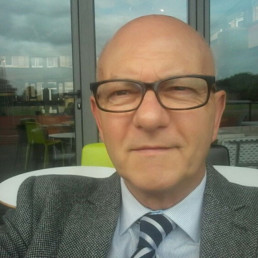
Written by Steve Morley
Inclusion teacher, Activity Alliance Tutor, Author, Educator, Public Speaker, and Mental Health Advocate.
I passionately believe in Inclusion. First and foremost, rather than an assumption that able bodied people do one thing and people with a disability do something else. Inclusion is very much “my thing” and one way I try to achieve it is through sport.
My vision is to see more disabled and able-bodied people playing sport together and my mission is to bring mixed ability events and inclusion to every school sports day.
In conversations with heads of sport from a number of schools, I’ve been discussing how some children find sports challenging. Working in schools my coaches and I use inclusive and adapted activities to encourage children to explore their attitudes about the nature of sport i.e. winning, taking part, competition and having fun. Many of the teaching staff applaud what we do. I often hear comments like, “I think it’s great that you are encouraging disable children into sport”, “Brilliant, disabled youngsters should have the same opportunities as other children”. However, I occasionally hear a remark along the lines of “It’s not really suitable for us since we don’t have any disabled children at our school”.
I believe that adapted and inclusive sport is not just appropriate for traditional models of disability. The definition of Inclusion is – the action or state of including or of being included within a group or structure.
So, what about the “non-disabled” child or young person who is un-coordinated, overweight, too tall, too small, not strong enough, not quick enough, can’t seem to hit the ball, kick the ball, catch the ball? A recent survey about why some people hated sports listed at number five that – it reminded them of childhood trauma. Their argument being that a bad youthful experience with sports affected them permanently.
I’m sure we all know people who dreaded sports days and would have given anything to avoid the PE class. By using adaptive, inventive and inclusive activities we can often engage with children who are not drawn to, or naturally good at, mainstream and traditional sports.
To reiterate my vision, I am seeking to achieve not just more disabled and able bodied people playing sport together but to bring mixed ability events and inclusion to every school sports day; I want all children to experience the joy that taking part in sport can bring, the connections that can be made, the sense of accomplishment and the feeling of being part of something bigger.
Most importantly, I want to take the dread out of sport and by making it “Inclusive”, make it FUN for all!

